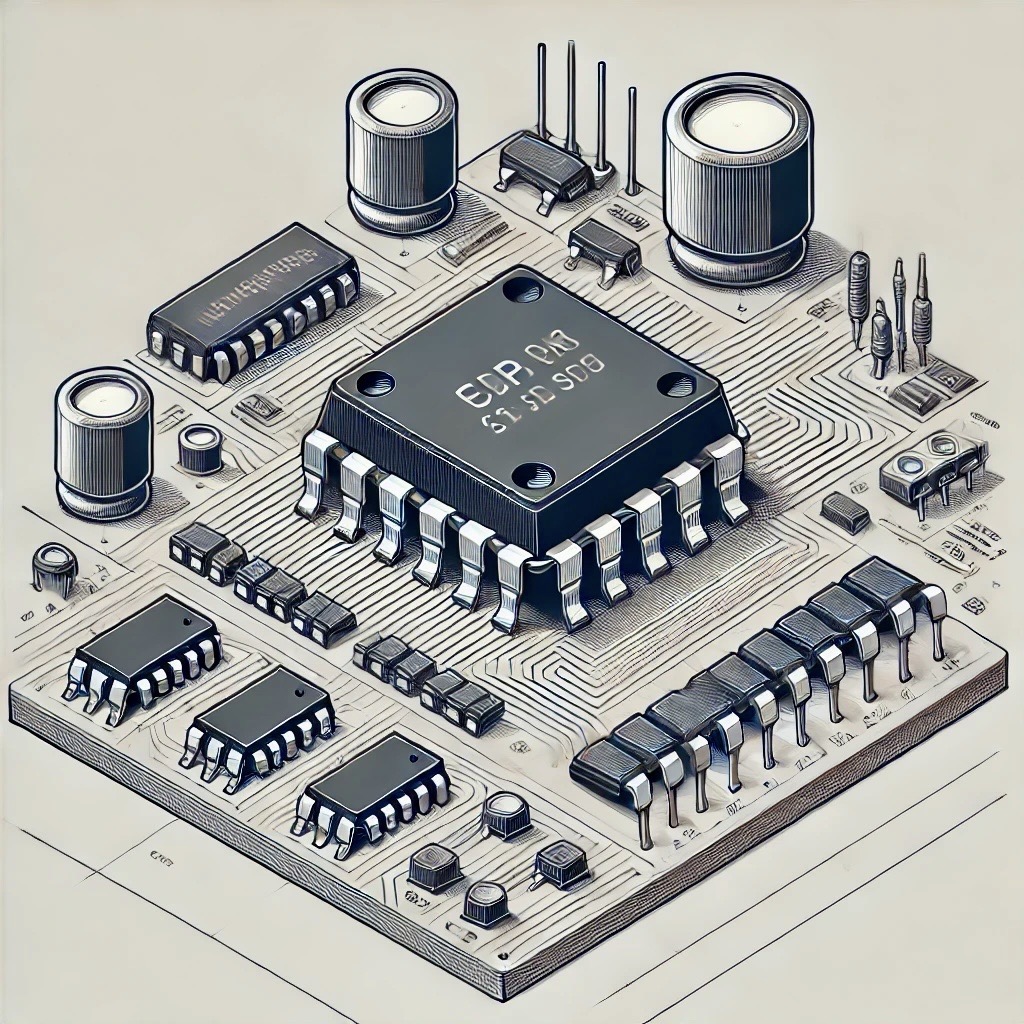What are Alternative Development Boards?
While Arduino, ESP, and Raspberry Pi dominate the maker scene, several alternative development boards cater to specific niches and offer unique features. These boards provide diverse architectures, expanded connectivity options, and varying levels of performance and cost.
Whether you’re looking for ultra-low power consumption, advanced machine learning capabilities, or something in between, there’s likely an alternative board that fits your needs.
Key Microcontroller Boards to Explore
1. STM32N6 Series
The STM32N6 series is a powerful new addition to the STM32 family, offering advanced AI and machine learning capabilities for embedded systems. With a highly integrated architecture, it is ideal for industrial automation, smart home, and AI-based applications.
- Processor: ARM Cortex-M33
- AI capabilities: TensorFlow Lite, DSP instructions
- Flash Memory: Up to 2 MB
- Connectivity: Ethernet, USB, CAN
- Applications: Industrial, AI edge devices, IoT

2. NXP LPC800
The LPC800 series is a cost-effective microcontroller family designed for low-power and entry-level embedded applications. It is easy to program and supports ARM Cortex-M0+ architecture, making it a great choice for prototyping.
- Processor: ARM Cortex-M0+
- Clock Speed: Up to 30 MHz
- Flash Memory: Up to 32 KB
- GPIO: 18 pins
- Applications: Low-power devices, IoT sensors

3. Teensy 4.1
Teensy 4.1 is a powerful microcontroller featuring the ARM Cortex-M7 processor. Known for its speed and versatility, it is ideal for high-performance embedded applications and supports the Arduino IDE for easy development.
- Processor: ARM Cortex-M7, 600 MHz
- Flash Memory: 8 MB
- GPIO: 55 pins
- Connectivity: USB, Ethernet
- Applications: Audio processing, robotics

4. Nordic nRF5340
The Nordic nRF5340 is a dual-core microcontroller designed for advanced Bluetooth Low Energy (BLE) and IoT applications. It offers excellent wireless capabilities with low power consumption, making it ideal for connected devices.
- Processor: Dual-core ARM Cortex-M33
- Flash Memory: 1 MB
- Connectivity: Bluetooth 5.3, NFC, USB
- GPIO: 48 pins
- Applications: IoT, wearables, smart home

5. STM32F4 Discovery
The STM32F4 Discovery board is part of the STM32 family and is designed for high-performance applications. It features an ARM Cortex-M4 processor with integrated DSP capabilities, suitable for advanced embedded projects.
- Processor: ARM Cortex-M4, 180 MHz
- Flash Memory: 1 MB
- RAM: 192 KB
- Connectivity: USB, GPIO, I2C, SPI
- Applications: Industrial automation, motor control

6. Microchip PIC18F45K22
The PIC18F45K22 is part of Microchip’s PIC microcontroller family, offering high performance with simplicity. It is ideal for entry-level embedded projects and is known for its low-power operation and extensive peripheral support.
- Processor: 8-bit
- Clock Speed: Up to 64 MHz
- Flash Memory: 32 KB
- GPIO: 36 pins
- Applications: Education, prototyping, IoT

7. Nordic nRF9160 SiP
The nRF9160 System-in-Package (SiP) combines LTE-M and NB-IoT connectivity with GPS capabilities for cellular IoT applications. It is highly integrated and energy-efficient, ideal for remote monitoring and IoT deployments.
- Processor: ARM Cortex-M33
- Connectivity: LTE-M, NB-IoT, GPS
- Applications: Remote sensing, asset tracking, fleet management

Choosing the Right Board
When choosing an alternative development board, consider your project’s requirements such as processing power, connectivity, form factor, power consumption, and available support. For AI or machine learning tasks, look for boards with dedicated hardware accelerators.
Additionally, consider the board’s software ecosystem and community support, as these factors play a critical role in the ease of development and long-term sustainability.
Conclusion
Whether you’re developing a smart device, a wearable, or a wireless IoT system, there is an alternative development board that can meet your needs. These boards provide opportunities to dive deeper into specialized features such as machine learning, low power consumption, and advanced connectivity.
